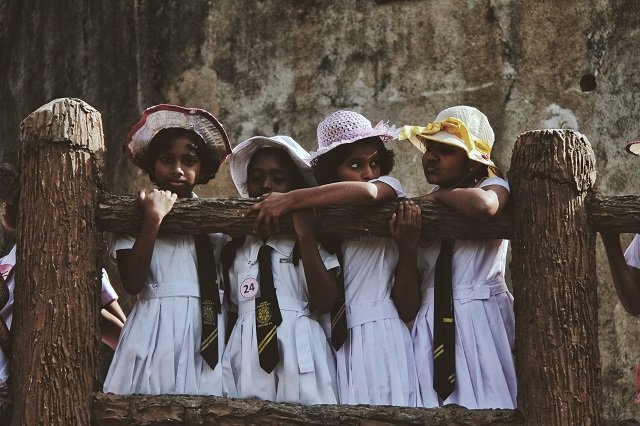As we celebrate our 77th Independence Day, let us recommit to serving Pakistan wholeheartedly.
by Muhammad Wasama Khalid
The Pakistani nation is joyfully celebrating its 77th anniversary of independence on August 14, 2024. This momentous occasion marks the nation’s liberation from colonial chains and the attainment of the right to determine its own destiny.
It is our cherished values that underpin our nation’s sovereignty, enabling us to live authentically in accordance with our cultural heritage and shared wisdom. Independence Day serves as a poignant reminder of this divine gift, demanding reverence from all Pakistanis.
 |
| Pakistani kids celebrating Independence Day, created with DALL-E. |
With Independence Day on the horizon, Pakistan is gripped by patriotic fervor. Children are at the heart of the celebrations, their joy palpable. The nation lights up with fireworks as young minds express their love for the country through colorful decorations. As excitement mounts and the air rings with laughter and chatter, children eagerly share their patriotic spirit with everyone around them.
The Parks and Horticulture Authority (PHA) has announced a dazzling Independence Day celebration. A spectacular fireworks display will illuminate Minar-i-Pakistan at midnight on August 14.
The architects of Pakistan endured immense hardship and made unparalleled sacrifices to establish a homeland for South Asia’s Muslims. Following the Indian Mutiny of 1857, the Muslim population of India faced growing alienation under British colonial rule and increasing tensions with the Hindu majority. This sustained mistreatment ignited the desire for a distinct Muslim identity and ultimately, an independent nation.
The Urdu-Hindi controversy of 1867 marked a pivotal moment, compelling figures like Sir Syed Ahmed Khan, a staunch advocate of Hindu-Muslim unity, to reassess his stance. The demand by Banaras Hindus to replace Urdu with Hindi, including a switch from the Persian to the Devanagari script, forced a significant shift in his perspective
Despite his efforts for reconciliation with Hindu leadership, Sir Syed Ahmed Khan had to say, “When even the language of a nation is not safe at the hands of other nations in a region, it would be unwise to continue living with them.”
In the later years, Muslims had to face apathy and discrimination even from the platform of the ‘Indian National Congress’ established to take care of the political rights of native Indians. Hindu leadership dominated this so-called liberal platform and used it for their political and socio-economic gains. The establishment of the All India Muslim League in 1906, the fourteen points of Quaid-i-Azam Muhammad Ali Jinnah-1929, and the Allahabad Address of Allama Dr Muhammad Iqbal-1930 gave further impetus for the establishment of a separate Muslim identity and a separate homeland for the Muslim of India.
The Lahore Resolution of 1940 was a pivotal turning point, marking the beginning of the journey towards a Muslim homeland. Seven years later, this aspiration materialized as Pakistan, became a refuge for millions of Indian Muslims facing discrimination and adversity under Hindu and colonial rule. This monumental achievement was the culmination of our forefathers’ tireless struggle and sacrifices.
Seventy-seven years after independence, Pakistan confronts challenges of unprecedented complexity and danger. These threats, both internal and external, dwarf those faced by our forefathers during the freedom struggle. A malevolent network of anti-Pakistan forces, operating overtly and clandestinely, seeks to undermine the nation. Extremism, radicalization, and terrorism are merely the most visible manifestations of these insidious forces.
Pakistan’s adversaries are evolving, employing insidious tactics to dismantle the very fabric of the state and society. By exploiting ethnic, sectarian, and radical divisions, they seek to erode the nation’s cohesion and undermine its ideological foundations.
The past two decades have seen a sharp escalation of these destabilizing trends. Consequently, the traditional cohesion and harmony that characterized Pakistani society for centuries has been severely compromised.
While adversarial forces have methodically infiltrated Pakistani society to sow discord, political leaders, religious scholars, intellectuals, and academics have fallen short in their duty to preserve societal harmony and cohesion.
Pakistan’s armed forces have successfully dismantled the core infrastructure of militant organizations through multiple operations. However, the resurgence of the TTP, facilitated by the Afghan Taliban’s return to power in 2021, has reignited a serious security challenge. Under the Taliban’s patronage, the TTP has launched numerous attacks on Pakistani military installations and civilian targets across the country. The Pakistani security forces, particularly the army, deserve commendation for their ongoing efforts to counter this threat.
While the armed forces have made significant strides in countering militancy, a collective effort is imperative to consolidate these gains. Political leaders, religious figures, academia, and the public must unite to create a lasting peace.
As we celebrate our 77th Independence Day, let us recommit to serving Pakistan wholeheartedly. By transcending ethnic, sectarian, and regional divisions, we can forge a stronger nation. Our focus should be on education, social harmony, youth development, economic prosperity, and technological progress. Together, we must thwart all attempts to undermine Pakistan’s sovereignty and identity.
Muhammad Wasama Khalid is a Correspondent and Researcher at Global Affairs. He is pursuing his Bachelors in International Relations at National Defense University (NDU). He has a profound interest in history, politics, current affairs, and international relations. He is an author of Global village space, Global defense insight, Global Affairs, and modern diplomacy. He tweets at @Wasama Khalid and can be reached at Wasamakhalid@gmail.com















Post a Comment